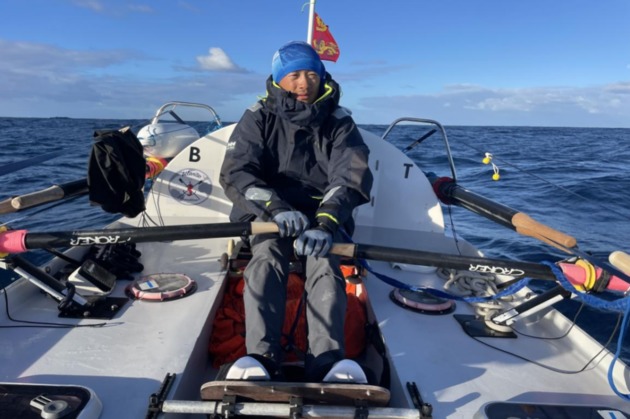
Photo/Website of Sichuan Tourism University
March 27 (NBD) -- Liu Yong, professor of Sichuan Tourism University's Mountain Tourism Research Institute, along with a group of French explorers, successfully arrived at Gwadloup, completing their transatlantic journey by rowing without any power assistance or backups.
The boat, dubbed the “Oarsman”, set sail from the Canary Islands of Spain on January 30, 2023. Divided into two groups, they worked in shifts to row non-stop for 54 days and 23 hours, covering a total of 5,239 kilometers, with each person rowing an average of more than 600,000 times.
During the journey, the team encountered a series of difficulties, including 25 knots of strong winds and even headwinds, as well as severe seasickness.
Sometimes, they had to change course to avoid strong winds and waves caused by high pressure. After 15 days of detours, they finally got out of the bad weather.
The team members were forced to expend tremendous amounts of energy rowing through the sea and their boats even came close to capsizing on the last few nights before reaching their destination.
Professor Liu Yong, a Ph.D. of Sichuan University and a renowned extreme explorer, has spent over 25 years of his life exploring. He has visited over 120 countries and regions, including the Arctic and Antarctic, the Himalayas, the Middle East deserts, tropical rainforests, and many other places yet to be named.
He was selected as one of China's top 10 explorers compiled by National Geographic in 2016. He is also the first Chinese that sailed across the North Atlantic and the first Chinese that climbed the top of the virgin peak of the south slope of the Himalayas. Many places where he left his footprints were also the first places for human beings to set foot on.
On this transoceanic expedition, Professor Liu not only completed a rigorous journey, but also conducted anthropological and ethnographical research. He recorded the journey through visual anthropology and wrote tens of thousands of words of observations and interviews, bringing home many valuable images and data. All of these will be analyzed and studied upon his return to China.


 川公网安备 51019002001991号
川公网安备 51019002001991号





